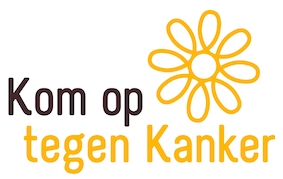Project description
Improving health-related quality of life of head and neck cancer patients via a dedicated comprehensive supervised exercise program
Tumours in the head and neck area hold a special place in cancer care, due to their location in a directly visible area and their impact on vital functions such as breathing, eating and drinking, and speaking. Tumour treatment frequently leads to worse physical functioning and functional impairments. The intense oncological treatments severely impact the physical capacities of patients, due to weight loss, muscle dysfunction, pain, etcetera. This evidently impacts social, psychosocial and work-related activities. These problems and complaints have clearly a major impact on patients' quality of life. Recent research in other more common cancers like breast cancer, has shown that comprehensive supervised exercise programs can significantly improve recovery and optimization of functional impairments, participation in social activities and thus, patients' quality of life. Data in the field of head and neck cancer are however lacking.
Currently, cancer rehabilitation in head and neck cancer (HNC) is often limited to speech and swallow rehabilitation. But physiotherapy, in particular exercise programs, may benefit HNC patients to improve their physical functions and participation in activities during and after cancer treatment. The integration of these programs into HNC care continues to languish. Particularly for patients treated with (chemo)radiotherapy (a typical outpatient setting), a recent American study showed that use of HNC-specific exercise programs is very low, despite the evident clinical need. Only 9% of HNC survivors has been reported to meet physical activity guidelines after cancer diagnosis. Moreover, a recent roundtable report states that in particular HNC survivors would benefit from a supervised exercise program. Encouraging exercise uptake and adherence should therefore be an important aspect of their clinical care.
But before this can be implemented in routine care (and patients are reimbursed for therapy), the content of this supervised exercise program needs to be determined and the potential benefit for the patient needs to be proven. Therefore, the aim of this randomized trial is to investigate the effectiveness of a dedicated comprehensive supervised exercise program compared to standard care in order to improve physical and psychosocial functioning, and thus overall health-related quality of life of HNC patients.
> CarEdOn primary researchers: Prof. An De Groef, Prof. Nele Devoogdt
> Research partners: Prof. Sandra Nuyts (Department of oncology, Radiation-Oncology, UZ Leuven), Prof. Thierry Troosters (Department of Rehabilitation Sciences, KULeuven), Prof. Koen Peers (Department of Physical medicine and Rehabilitation, UZ Leuven)
> Keywords: head and neck cancer, exercise therapy, edema, pain, quality of life
> Contact: an.degroef@kuleuven.be
With the support of Kom Op Tegen Kanker
